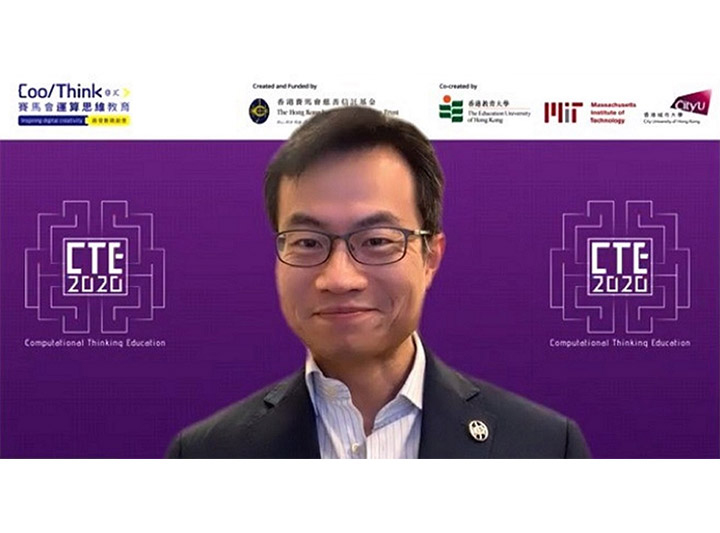

Charities & Community
Youth Development
Jockey Club supports knowledge sharing on computational thinking education
09/09/2020
Computational thinking and coding education are playing an increasingly important role in secondary and primary school curricula. To provide a platform for exchanging knowledge and insights on computational thinking education, the Trust-initiated project CoolThink@JC organised the 4th International Conference on Computational Thinking Education 2020, which was held online in August 2020 with more than 700 world-renowned academics and frontline education practitioners joining.
The CoolThink@JC pilot project was launched by the Club’s Charities Trust in 2016 to equip upper primary students in Hong Kong with computational thinking-coding capabilities from a young age. The aim is to empower them to go beyond simply consuming technology to using technology to solve problems, create and innovate, employing digital creativity and tackle challenges in an increasingly digital future.
More than 20,000 students from 32 pilot primary schools have acquired computational thinking concepts, practices and perspectives, and have grown their problem-solving skills by twice as much as their non-participating counterparts during the four-year pilot project.
Recently, the Education Bureau published the latest Computational Thinking and Coding Education Supplement Guide, recommending primary schools to adopt the document in curriculum planning and implement coding education systemically to cultivate students’ computational thinking. For secondary schools, the Bureau has also updated the Information and Communication Technology Curriculum to expand the content coverage to computational thinking, artificial intelligence and ethics, indicating the growing importance of computational thinking in classrooms.
Building on the success of the initiative, the second phase of CoolThink@JC will commence in September 2020. The objectives are: to scale the initiative to a wider, more diverse set of local primary schools; to create a self-sustaining ecosystem that nurtures digital creativity in all classrooms; to work together with policymakers and stakeholders to incorporate computational thinking education into formal and mainstream curricula; and to contribute to the emerging global literature on computational thinking education.



